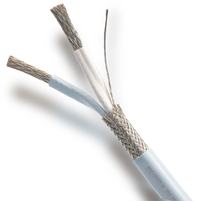I am thinking about choosing cables for my equipment (no matter what for this topic)
I am not a professional in this field, but I have reviewed several opinions that it is not worth investing in OFC cables because there is no difference compared to CCA.
And here the question arises, because CCAs are a bit cheaper (they are not a lot of money, but why overpay)
I do not know myself so I am asking for simple answers
Here is what interests me
http://www.avstore.pl/kabel-jack-2rca-wireway-5m.html
Many thanks for the tips!
I am not a professional in this field, but I have reviewed several opinions that it is not worth investing in OFC cables because there is no difference compared to CCA.
And here the question arises, because CCAs are a bit cheaper (they are not a lot of money, but why overpay)
I do not know myself so I am asking for simple answers
Here is what interests me
http://www.avstore.pl/kabel-jack-2rca-wireway-5m.html
Many thanks for the tips!



